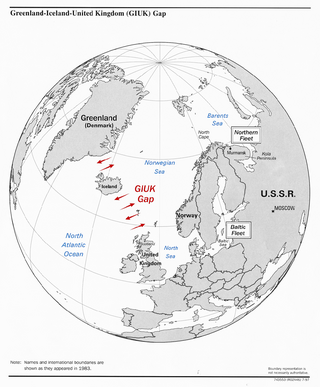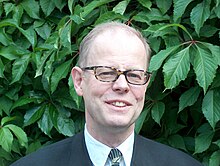
The Swedish Armed Forces is the government agency that forms the armed forces of Sweden, tasked with the defense of the country as well as with promoting Sweden's wider interests, supporting international peacekeeping, and providing humanitarian aid. It consists of the Swedish Army, the Swedish Air Force and the Swedish Navy, as well as a military reserve force, the Home Guard. Since 1994, all Swedish military branches are organized within a single unified government agency, headed by the Supreme Commander, even though the individual services maintain their distinct identities.

The foreign policy of Sweden is based on the premise that national security is best served by staying free of alliances in peacetime in order to remain a neutral country in the event of war. In 2002, Sweden revised its security doctrine. The security doctrine still states that "Sweden pursues a policy of non-participation in military alliances," but permits cooperation in response to threats against peace and security. The government also seeks to maintain Sweden's high standard of living. These two objectives require heavy expenditures for social welfare, defense spending at rates considered low by Western European standards, and close attention to foreign trade opportunities and world economic cooperation.

The Nordic Council is the official body for formal inter-parliamentary Nordic cooperation among the Nordic countries. Formed in 1952, it has 87 representatives from Denmark, Finland, Iceland, Norway, and Sweden as well as from the autonomous areas of the Faroe Islands, Greenland, and Åland. The representatives are members of parliament in their respective countries or areas and are elected by those parliaments. The Council holds ordinary sessions each year in October/November and usually one extra session per year with a specific theme. The council's official languages are Danish, Finnish, Icelandic, Norwegian, and Swedish, though it uses only the mutually intelligible Scandinavian languages—Danish, Norwegian, and Swedish—as its working languages. These three comprise the first language of around 80% of the region's population and are learned as a second or foreign language by the remaining 20%.

The GIUK gap is an area in the northern Atlantic Ocean that forms a naval choke point. Its name is an acronym for Greenland, Iceland, and the United Kingdom, the gap being the two stretches of open ocean between these three landmasses. It separates the Norwegian Sea and the North Sea from the open Atlantic Ocean. The term is typically used in relation to military topics. The area has for some nations been considered strategically important since the beginning of the 20th century.

The Scandinavian defence union was a failed plan to establish a military alliance between Sweden, Norway, Finland and Denmark after the end of World War II. Finland had fought two wars against the Soviet Union, Denmark and Norway had been occupied by Germany between 1940 and 1945, and Sweden, having been a neutral state throughout the war, had still felt the effects on either side. The four governments agreed that integration in the area of defence was needed, but an arrangements and the nature of a defence union did not materialize when Denmark, Iceland and Norway joined NATO in 1949, while Finland and Sweden did not.
Swedish neutrality refers to Sweden's former policy of neutrality in armed conflicts, which was in effect from the early 19th century to 2009, when Sweden entered into various mutual defence treaties with the European Union (EU), and other Nordic countries. Sweden's previous neutrality policy had originated largely as a result of Sweden's involvement in the Napoleonic Wars during which over a third of the country's territory was lost in the Finnish War (1808–1809), including the traumatic loss of Finland to Russia. From this point onwards, Finland remained a part of Russia until it gained independence in 1917. Resentment towards the Swedish king Gustav IV Adolf who had consistently pursued an anti-napoleonic policy and thereby caused the war, precipitated a coup d'état known as the Coup of 1809. The new regime deposed the king and introduced the Instrument of Government (1809), later formulating a new foreign policy which became known as The Policy of 1812.

Scandinavism, also called Scandinavianism or pan-Scandinavianism, is an ideology that supports various degrees of cooperation among the Scandinavian countries. Scandinavism comprises the literary, linguistic and cultural movement that focuses on promoting a shared Scandinavian past, a shared cultural heritage, a common Scandinavian mythology and a common language or dialect continuum, and which led to the formation of joint periodicals and societies in support of Scandinavian literature and languages. Nordism expands the scope to include Iceland and Finland.
Geostrategy, a subfield of geopolitics, is a type of foreign policy guided principally by geographical factors as they inform, constrain, or affect political and military planning. As with all strategies, geostrategy is concerned with matching means to ends Strategy is as intertwined with geography as geography is with nationhood, or as Colin S. Gray and Geoffrey Sloan state it, "[geography is] the mother of strategy."

Johan Rudolf Kjellén was a Swedish political scientist, geographer and politician who first coined the term "geopolitics". His work was influenced by Friedrich Ratzel. Along with Alexander von Humboldt, Carl Ritter, and Ratzel, Kjellén would lay the foundations for the German Geopolitik that would later be espoused prominently by General Karl Haushofer.

The Supreme Allied Commander Atlantic (SACLANT) was one of two supreme commanders of the North Atlantic Treaty Organisation (NATO), the other being the Supreme Allied Commander Europe (SACEUR). The SACLANT led Allied Command Atlantic was based at Norfolk, Virginia. The entire command was routinely referred to as 'SACLANT'.
The submarine hunts or submarine incidents were a series of several incidents involving foreign submarines that occurred in Swedish territorial waters during the Cold War, attributed in Swedish media to the Soviet Union.
The National Underwater Reconnaissance Office (NURO) is the "hidden younger brother" of the National Reconnaissance Office (NRO). NRO was initiated in 1960 and developed as a common office for United States Air Force and the Central Intelligence Agency (CIA) to manage satellite reconnaissance. The first revelation about NRO came in 1973, but its very existence was not declassified until 1992. According to Jeffrey T. Richelson, "[m]ost often the Under Secretary of the Air Force served as a Director of the NRO". NURO was initiated in 1969 and developed as a common office or liaison office for the United States Navy and the CIA to manage underwater reconnaissance. NURO used "special project submarines" like USS Seawolf (SSN-575), USS Halibut (SSN-587), and USS Parche (SSN-683) deep inside the waters of the Soviet Union to put out listening devices, tap communication cables, monitor Soviet Navy bases and record sound signatures of Soviet submarines. NURO is a little-known agency; even its name has been secret and its very existence was first revealed in 1998. The United States Secretary of the Navy has served as its director.

J. Peter Burgess is a philosopher and political scientist. He is Professor and Director of the Chair of Geopolitics of Risk at the Ecole Normale Supérieure, Paris. He is series editor of the Routledge New Security Studies collection. His research and writing concern the meeting place between science, culture and politics in particular in Europe, focusing most recently on value theory and digital technologies. He has published 18 books and over 100 articles in the fields of philosophy, political science, gender studies, cultural history, security studies and cultural theory. He has contributed to research and educational policy in Norway, France, Poland and the European Commission. In addition, he has developed and directed a number of comprehensive collaborative research projects with Norwegian and European partners.
Arctic Policy of Norway is Norway's foreign relations with other Arctic countries, and Norway's government policies on issues occurring within the geographic boundaries of "the Arctic" or related to the Arctic or its people. Since Norway is itself an Arctic nation, the Arctic Policy of Norway includes its domestic policies as regards the Norwegian Arctic region.

The Hårsfjärden, or Horsfjärden, is a fjard off the Baltic Sea near Stockholm, Sweden. About 20 kilometres (12 mi) long, it has surface area of 61.5 square kilometres (23.7 sq mi). It is the location of three Swedish naval bases: Märsgarn, Muskö, and Berga.

Rear Admiral Jens Gunnar Peter Nykvist is a Swedish Navy officer. Nykvist senior commands include commanding officer of the 1st Submarine Flotilla and the Maritime Component Command. He served as the Chief of Navy from 2016 to 2020. Nykvist currently serves in the Ministry of Defence.

Admiral Bengt Gustaf Gottfrid Lundvall was a senior Swedish Navy officer. He was Chief of the Navy from 1970 to 1978.

Admiral Bror Per Harald Stefenson was a Swedish Navy officer. Stefenson's senior commands include Chief of the Defence Staff and military commander of the Eastern Military District as well as Commandant General in Stockholm. He also served as Chief of His Majesty's Military Staff. As of 2020, Stefenson remains the last appointed Swedish admiral.

The Murmansk Initiative was a series of wide-range foreign policy proposals concerning the Arctic region made in a speech by the Secretary-General of the Communist Party of the Soviet Union - Mikhail Gorbachev - on October 1, 1987 in Murmansk, Soviet Union, considered to be a trademark of his foreign policy.
The 1982 Hårsfjärden incident was a peacetime naval engagement in which the Swedish Navy laid a trap for, pursued, and attempted to sink a foreign submarine that had violated Swedish territorial waters. The incident came in the wake of increased Soviet submarine activity in the Baltic Sea, with Sweden alleging that the Soviet Union had violated Sweden's territorial waters several times from 1974 – 1981. The incident, which led to a parliamentary investigation in Sweden, resulted in increased tensions between Sweden and the Soviet Union, and the claimed intrusion of a Soviet submarine remains a contested topic.














